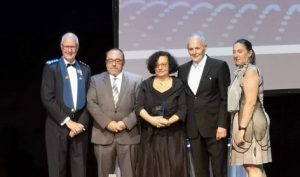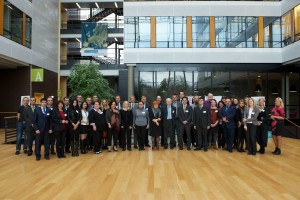SPACE projects
The SPACE project takes its name from the Council of Europe Annual Penal Statistics, better known as SPACE (Statistiques Pénales Annuelles du Conseil de l’Europe) Statistics, which aim to provide an overview of the use of prison and probation in the 47 member states of the Council of Europe (CoE).
This aim is fulfilled through the publication of two annual reports: SPACE I and SPACE II. SPACE I focus on prison populations and the penal institutions in which they are held; SPACE II focus on probation populations and the probation agencies that supervise them.
In principle, persons on probation are serving non-custodial and semi-custodial sanctions and measures. The latter are frequently referred to as alternatives to imprisonment, and most of them are community sanctions and measures (CSM). Consequently, the SPACE project provides an overview of the use of custodial (SPACE I) and non-custodial (SPACE II) sanctions and measures throughout Europe.
Data for the SPACE reports are collected by means of two independent but interrelated questionnaires agreed by the Council for Penological Co-operation (PC-CP) of the CoE. These questionnaires are sent every year by a research team of the Criminology Research Unit ate the School of Criminal Sciences (Ecole des sciences criminelles) of the University of Lausanne (UNIL) to the prison administrations (SPACE I) and to the probation agencies (SPACE II) of the CoE member states. The questionnaires require data as well as metadata. The latter refer to the rules applied in each country to collect and register data in the national statistics. he aim is to obtain data as comparable as possible across countries and to be able to explain artificial differences across them using the metadata collected.
The questionnaires are filled by national correspondents in each prison administration and probation agency. National correspondents are qualified staff employed at the national and/or regional prison administrations and probation agencies of each country. Once the questionnaires are filled, they are sent back to the UNIL research team, which undertakes a procedure of data validation that involves a multilevel counterchecking of the information received.
Throughout the years, the SPACE project has contribute to establish an extended network of experts on prison and probation in Europe. Permanent contacts and exchanges with them are enriched by the collaboration with several international bodies including the United Nations on Drugs and Crime (UNODC), the International Centre for Prison Studies (ICPS), the European Monitoring Centre for Drugs and Drug Addiction (EMCDDA), the Confederation of European Probation (CEP), and EuroPris.
Currently, the UNIL research team working in the SPACE project is composed by :
Marcelo F. Aebi, PhD Criminology, Professor
Edoardo Cocco, MLaw Criminology
Lorena Molnar, MLaw Criminology
Yuji Z. Hashimoto, MLaw Criminology


